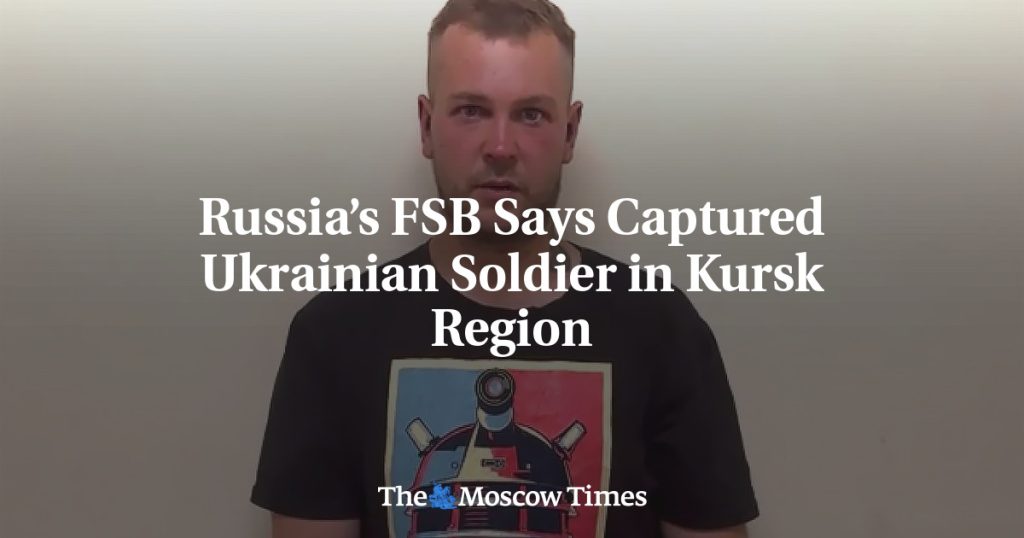The Federal Security Service (FSB) of Russia announced that they had detained a Ukrainian soldier who alleged that his commanders had given orders to shoot to kill during an assault on Russia’s Kursk region. The captured soldier, a member of Ukraine’s 80th Air Assault Brigade, stated during interrogation that Ukrainian soldiers were told to shoot everyone on sight if faced with resistance from local residents. The soldier was apprehended by Russian border troops with the help of locals as he tried to escape back to Ukraine after being abandoned by his comrades.
A video released by the Russian defense ministry-affiliated broadcaster Zvezda showed the captured soldier, identified as Ruslan Poltoratsky, speaking about his commander’s orders to shoot men in the foot and leave them in a field or basement, and to shoot them if they were armed. It was unclear if Poltoratsky was coerced or speaking freely in the videos. The FSB did not specify whether charges would be filed against him. Poltoratsky claimed that Ukrainian forces were planning to invade the Kursk region and move towards the neighboring Belgorod region, with the aim of capturing as much territory as possible for negotiating leverage.
The interrogation of Poltoratsky revealed that the operation was considered Ukraine’s last chance, as one of his commanders had suggested. The soldier’s remarks indicated that the Ukrainian forces had been preparing for this incursion since July 28. The FSB did not provide details on the potential consequences for Poltoratsky, and it remains unclear how his claims will be verified or investigated. The situation highlights the ongoing tensions between Russia and Ukraine, as well as the complexity of conflict in the region.
The circumstances surrounding the capture of the Ukrainian soldier raise questions about the rules of engagement and conduct of military operations in the region. The alleged shoot-to-kill orders raise concerns about potential human rights violations and the treatment of civilians caught in the crossfire. The incident also underscores the challenges of managing conflict in the area and the need for diplomatic solutions to prevent further escalation.
The conflicting narratives from the FSB and the Ukrainian soldier add to the complexity of the situation, as each side presents its own version of events. The lack of independent verification of the soldier’s claims adds to the uncertainty surrounding the case. It remains to be seen how the international community will respond to these developments and what steps will be taken to address the allegations of misconduct and violence in the region.
Overall, the capture of the Ukrainian soldier by the FSB sheds light on the ongoing tensions in the region and the complexities of the conflict between Russia and Ukraine. The allegations of shoot-to-kill orders and military incursions highlight the challenges of managing the situation and the need for diplomatic efforts to address the root causes of the conflict. The case underscores the importance of independent verification of claims and the pursuit of justice for any potential violations of international law.














